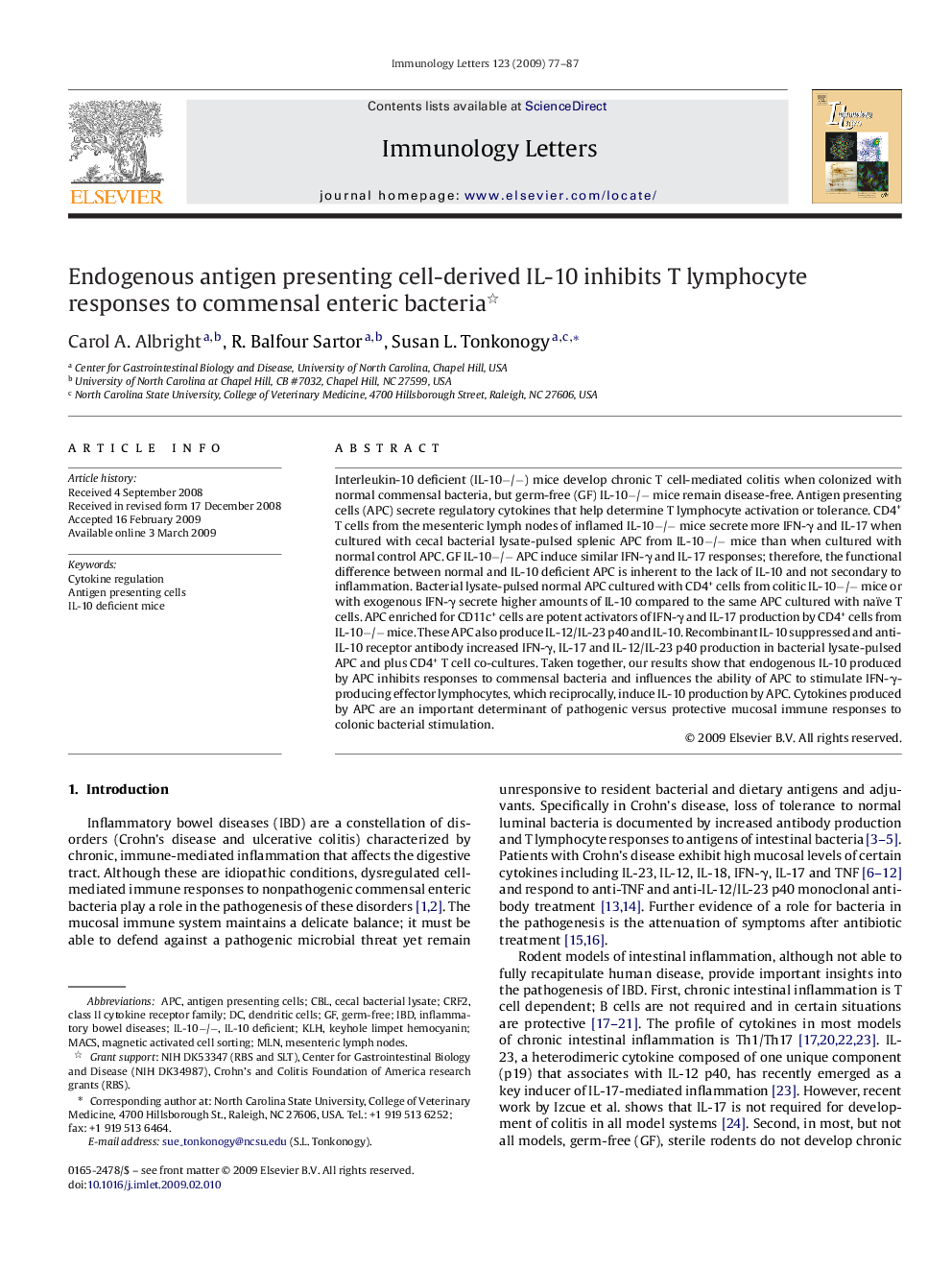| Article ID | Journal | Published Year | Pages | File Type |
|---|---|---|---|---|
| 3355942 | Immunology Letters | 2009 | 11 Pages |
Interleukin-10 deficient (IL-10−/−) mice develop chronic T cell-mediated colitis when colonized with normal commensal bacteria, but germ-free (GF) IL-10−/− mice remain disease-free. Antigen presenting cells (APC) secrete regulatory cytokines that help determine T lymphocyte activation or tolerance. CD4+ T cells from the mesenteric lymph nodes of inflamed IL-10−/− mice secrete more IFN-γ and IL-17 when cultured with cecal bacterial lysate-pulsed splenic APC from IL-10−/− mice than when cultured with normal control APC. GF IL-10−/− APC induce similar IFN-γ and IL-17 responses; therefore, the functional difference between normal and IL-10 deficient APC is inherent to the lack of IL-10 and not secondary to inflammation. Bacterial lysate-pulsed normal APC cultured with CD4+ cells from colitic IL-10−/− mice or with exogenous IFN-γ secrete higher amounts of IL-10 compared to the same APC cultured with naïve T cells. APC enriched for CD11c+ cells are potent activators of IFN-γ and IL-17 production by CD4+ cells from IL-10−/− mice. These APC also produce IL-12/IL-23 p40 and IL-10. Recombinant IL-10 suppressed and anti-IL-10 receptor antibody increased IFN-γ, IL-17 and IL-12/IL-23 p40 production in bacterial lysate-pulsed APC and plus CD4+ T cell co-cultures. Taken together, our results show that endogenous IL-10 produced by APC inhibits responses to commensal bacteria and influences the ability of APC to stimulate IFN-γ-producing effector lymphocytes, which reciprocally, induce IL-10 production by APC. Cytokines produced by APC are an important determinant of pathogenic versus protective mucosal immune responses to colonic bacterial stimulation.
